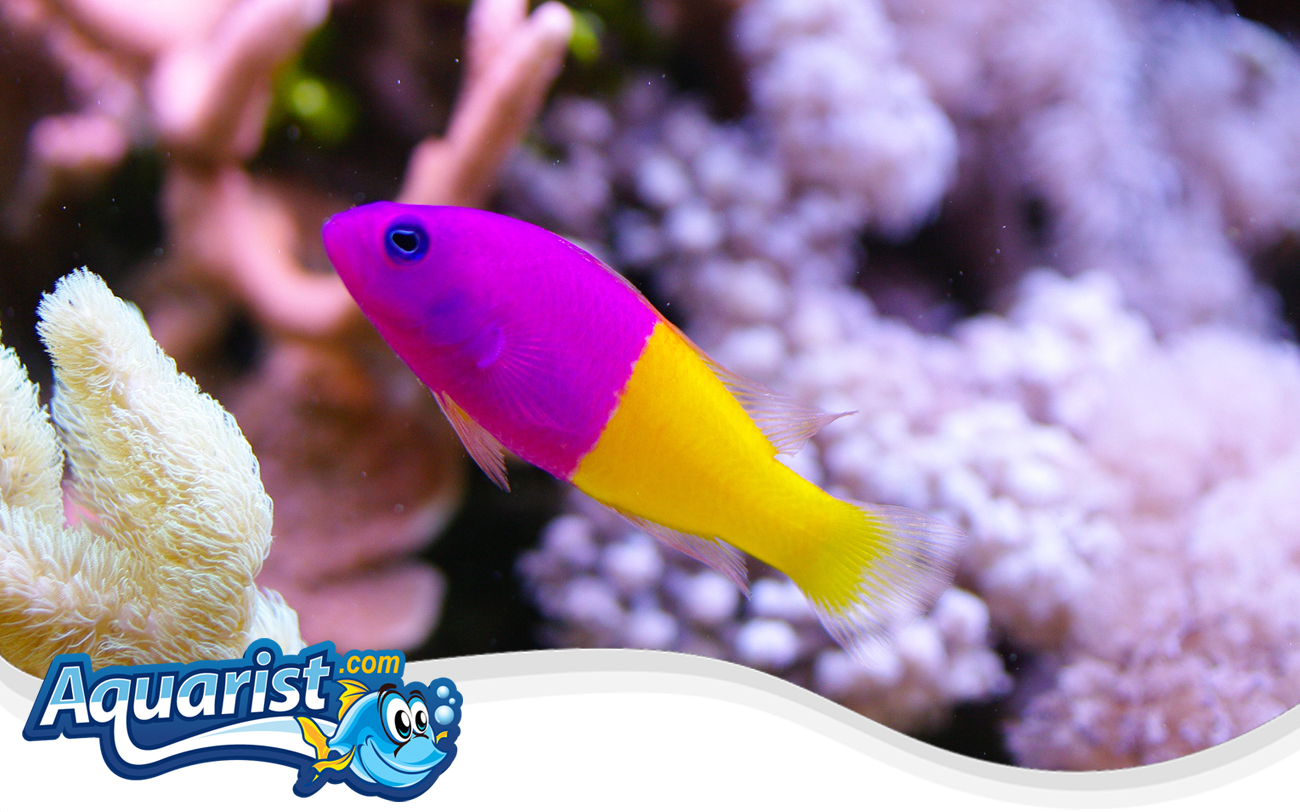Overview
- Native to the Indo-Pacific region, commonly found inhabiting coral reefs and rocky crevices.
- Distinctive two-tone coloration with a vibrant purple front half and bright yellow rear half.
- Popular aquarium species for its bright colors, active nature, and relatively hardy constitution.
- Known for bold, territorial behavior, suitable for intermediate marine aquarists.
Feeding
- Carnivorous; naturally feeds on small crustaceans, worms, and zooplankton.
- Accepts varied aquarium foods including mysis shrimp, brine shrimp, finely chopped seafood, and high-quality marine pellets or flakes.
- Multiple daily feedings recommended for optimal health and coloration.
- Variety in diet essential for nutritional balance and overall health.
Habitat
- Suitable for smaller aquariums (minimum 30 gallons) with ample hiding places and extensive live rock structures.
- Requires a mature, stable aquarium environment with consistent water conditions.
- Provide numerous caves, crevices, and hiding spots to reduce aggression and stress.
- Moderate water flow and efficient filtration necessary for ideal water quality.
Fish Care
- Optimal water temperature: 72-78°F (22-26°C).
- Recommended pH: 8.1-8.4; specific gravity: 1.020-1.025.
- Generally hardy but sensitive to sudden changes; regular water testing and routine maintenance required.
- Monitor for marine diseases and parasites; early detection and treatment are key.
Compatibility
- Semi-aggressive; best housed with robust, similarly-sized fish.
- May exhibit territorial behavior, particularly towards other dottybacks or similarly shaped fish.
- Generally reef-safe but may prey on small shrimp and invertebrates.
- Recommended tank mates include larger clownfish, dwarf angelfish, tangs, and other semi-aggressive fish species.
Aquarium Behavior
- Bold, active swimmers often seen exploring caves and rock formations.
- Displays territorial aggression, especially in smaller aquariums; ample hiding spaces help reduce conflicts.
- Generally solitary; best kept singly unless provided with a larger aquarium setup.
- Interactive, inquisitive behavior; engages actively with aquarium caretakers during feeding.


